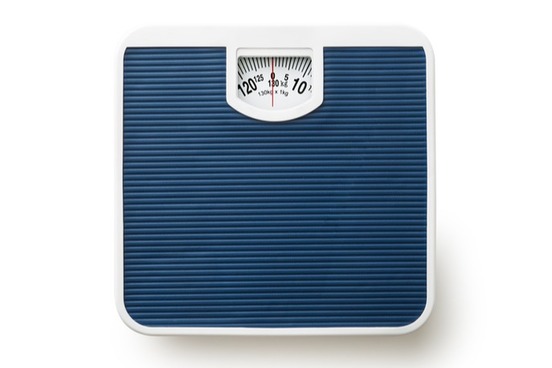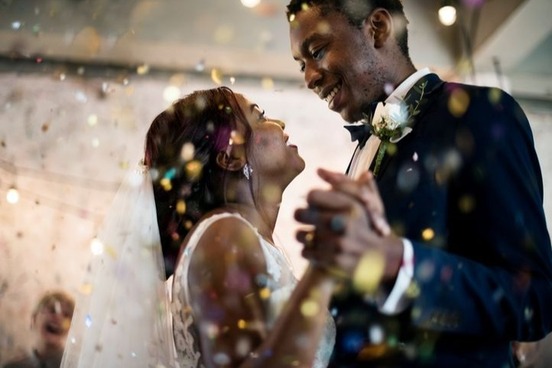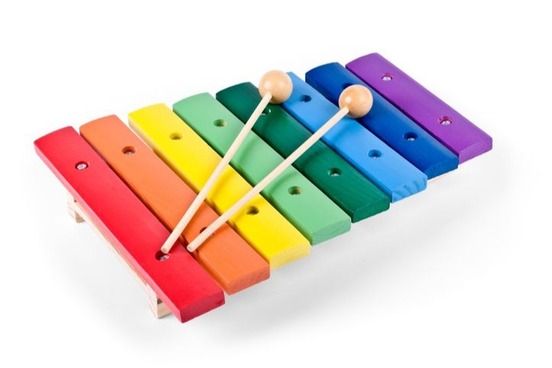
English is maddening, and (again) it's not sorry.
Think of this as a companion piece to Every Letter Is Silent, Sometimes as, again, we point out how the English language is quite ridiculous, even at the elementary ABC level. Here, we will discuss sound pictures that contain letters not associated with the sound they form—in other words, when the long or short pronunciations of a letter (or sometimes the name of the letter itself) are heard but the letter itself is absent. The long u can be heard loud and clear in the ew sound picture of new, for example, and y is pronounced as a short i in myth, but the letters u and i are not actually present in the words. Because why would they make anything easy?

A
First, the ones that make sense. A common word introduced to early spellers of the English language is bat—after all, it includes two of the first three letters of the ABC's. Bat uses the short vowel sound of the letter a. Long a is found in the epithet "Mithridates the Great" (which includes two sound pictures of long a: a-e and ea) and the words quay, rain, and straight (in which the simple a sound is represented in long-form, aigh).
Examples of words sounding a but not having it represented orthographically are weigh (in which eigh is the letter's sound picture), reign (ei), and the pronoun they (ey).
There are also foreign borrowings in English that are adopted unaltered, giving us non-English sound pictures of a—for example, French cabernet and resume.

B
The letter b is usually seen singularly or doubly when heard (e.g., bubble). In the past, the letter w was, literally, a "double u" (we elaborate on this at the W entry) and it is in that letter's name that b makes noise unseen.

C
C seems to have some kind of deal worked out with s. They love to buddy up in words like science and scissors to make the typical s sound. Then, when s couples with a letter having a long e sound, it usually takes on the sound of the letter c (as in cede) since, phonetically, c is composed of the sounds \s\ and \ē\—thus, we have sea, addressee, and artsy.

D
There are many words in English—such as metal and medal, bleating and bleeding, or bitter and bidder—where t and d are often pronounced the same. In these words, however, it is not the case that t is being pronounced as d. Rather, the tricksters known as t and d are here being pronounced as a third sound, commonly known as a flap or tap and created when the tongue makes contact with another point in the mouth when sounding out a consonant. The flap that we may hear in a word like bleating is not the same sound as the final consonant in bleat, but it is also not the same as the final consonant in bleed. The flap occurs between vowels with the first being in a stressed syllable, so we do not hear the flap in words like attack, since the vowel following the t is in a stressed syllable.
The same phenomenon applies to numbers like thirty and forty, where d is more often voiced than t.

E
Long e makes itself known in words like me, honey, chief , and the classic "i before e except after c" example receive. In addition, we have spaced-out e sound pictures like petite (where the e is technically present, but just there to make the i carry its water). The long e can also be heard in words not including the letter, as in marry, funny and variation. On the other hand, short e is evident in the homophones red and past-tense read and in ie words like friend; it is unseen but heard in words like said.

F
We're all familiar with the sound of f as represented in the homophones fat and phat—if you're unfamiliar with phat, then there's the ph in the ubiquitous phone as an example. Gh is also pronounced as f, as in laugh and rough. Most words that contain gh derive from Middle English, in which the digraph was pronounced much like how ch is pronounced in the German words Ich or Nicht; that is, somewhere between hard g and k. A change in the way speakers pronounced the vowel sounds in many words (a phenomenon known in linguistics as the Great Vowel Shift) affected how the gh was pronounced when it followed vowels. Words that ended in gh, then, saw a change that led to those letters impersonating an f.

G
The dictionary pronunciation of the letter g is \ˈjē\, and words that begin with the letter j followed by a long e tend to be heard as a soft g, as in jeans, jeep, and jeer. (Examples of the soft letter g—which usually comes before e, i, or y—are gel and giant.)

H
Although not visible, the letter h has a say in words having the final syllable -ture, which is pronounced -chǝr. It is aspirated in words like nature, nomenclature, and legislature.

I
The vowel i gets an assist from e in words like kite and cried and from gh in night and height, but both long and short i are represented by y in words like fly and myth; in addition, there is -ye which forms long i in words like dye and bye.

J
J and g share a pronunciation. For example, words like gem, gist, gym, barge, and budge contain a sound similar to the initial ones heard in jet and judge. The rule is when g is followed by an i, e or y, it makes the j sound.

K
The sound of k is audible in c words (care, academic) and ch words (chrome, archive, ache, scheme, monarchy). K is also heard in foreign borrowings, such as the French marquis and Latin machination, which can be pronounced in English with the ch representing the k sound or a sh sound (the latter being influenced by French-derived machine).

L
L likes the limelight. It's often spotted with another l (bill) or with a vowel (sample, label, pupil, sabal). Like b, it is unseen but audible in w. (Speaking of which, we're getting closer.)

M
M prefers to be with the silent types—a behavior we applaud—like b in numb and n in autumn. It also remembers to pay a visit to grandpa, which is sometimes pronounced in colloquial and dialectal English as "grampa."

N
Although n follows k, g and p, it is the auditory leader in words like know, gnat, and pneumonia. It also makes its presence known in (okay, stomps all over) comptroller. That word is an alteration of Middle English countreroller, meaning "controller," and its spelling was influenced by French compte, meaning "an account" (as in a bank account). In modern English, the first syllable (comp-) is pronounced either \kǝn-\ (as in controller) or \käm(p)-\ (from the French term).

O
Long o (as in host) is social. It frequently pairs with a, e, u, w, -ugh and other os: oar, note, soul, low, though, and floor are some get-togethers. Short o is obvious in words like hot; sometimes, however, it dresses up as a and walks around in words like father, fraud, law, talk, and daughter.
In addition, there are a few French borrowings with the long o sound without the letter o, such as beau, bureau, nouveau, and haute.

P
P puts a stop to hiccup—unless you use the variant hiccough. Both spellings are equally valid; however, hiccup, which goes back to the late 16th century, has been in use longer than hiccough. Like many words in English, hiccup is onomatopoeic, having been created through imitation of the sound we make when we hiccup. By the early 17th century, hiccough makes its appearance. According to one source, "The spelling 'hiccough,' popular with the Victorians, is an example of folk etymology circulated by misguided philologists who thought the word derived from 'cough.'" Interestingly enough, however you spell it the word will still be pronounced as rhyming with "stick up."

Q
The letter q is pronounced the same as the word cue (which itself is also a name for the letter). The letter and the word have a history. In Middle English, the word cu referred to half a farthing, and that term ultimately traces to the letter q as an abbreviation for Latin quandrans, denoting the quarter value of a coin. Additionally, cue, referring to a signal, is believed to be from the abbreviation qu for the Latin word quando, meaning "when" and used as a direction in an actor's copy of a play. Q has a voice role in cu words like cube, cumulate, cuneiform, and cute.

R
R works openly with w, h , and e in words like write, rhino, and there. However, it secretly hides in colonel. English borrowed the word from French coronel, and originally it was pronounced with an r sound. The French word is derived from Italian colonnello, and when the French borrowed it, they found it difficult to pronounce. In an effort to ease the pronunciation problem, they changed the first l sound to an r sound. This is quite a common occurrence; when there are two l sounds or two r sounds near each other in a word, one of them is frequently omitted or changed to a different sound to eliminate a tricky pronunciation. Linguists call this type of alteration dissimilation.
When English later adopted the word, the French pronunciation was kept, but the letter r was changed back to an l, making the term look more like the original Italian word and producing the never-ending conflict we continue to have between spelling and pronunciation.

S
Generally, when the letter c is followed by i, e, or y, it makes an s sound—for example, city, citation, cent, and icy. Long e is the exception (e.g., cede) since the letter c is pronounced as s followed by long e. There is also the unique sound picture ce, as in voice, in which c is seen but s is heard.

T
The t sound frequently is heard in words with the past and past participle suffix -ed, which can be pronounced as \t\, \d\, or \id\, depending on the final sound of the verb root in question. Here are the "rules" for pronunciation of -ed:
1) as \d\ after a vowel or b, g, j, l, m, n, ŋ, r, t͟h , v, z, or _zh\ (ex: _tagged, labeled, barred)
2) as \ǝd\ or \id\ after d or t (ex: folded, printed)
3) as \t\ after other sounds (ex: walked, marched, developed, released)

U
In Old English, the pronoun you had the form ēow, and ewe ("a female sheep") was ēowu. Today, ewe retains its Old Englishness, and so does few—being such, the word is sounded with a long u without including that letter.
Short u, on the other hand, is heard in some, the homophone of sum, and the a in about is sometimes regarded as having a similar sound.

V
The pronunciation of of with a v sound was formalized in the 16th and 17th centuries, and that happened without much to-do, which is odd for an English word. Consider this, at the very least, some centuries-overdue to.

W
One and won are homophones. The initial w sound in one developed in late Middle English; likewise, once is recorded as wonus around the same time. Prior, one rhymed with alone and atone, both of which are derived from Middle English one.
The reason we refer to this letter as "double-u," despite its resemblance to a double-v, is the Roman alphabet did not contain a w because the sound \w\ did not exist in contemporary Latin. Another feature of the Roman alphabet was the use of the symbol v to stand for the modern vowel u and consonant v. As Old English began to flourish, a separate symbol was needed to represent the sound \w\, as use of the u or v could lead to ambiguity. The ligatured symbol uu was eventually used for this purpose. The character never lost its name "double-u" despite its use as a single letter and its resemblance to a double-v.

X
The letter x is pronounced with a short e followed by k and s, and its name is often heard in the ending of plural words having a similar make-up: decks, biotechs, specs, intellects, discotheques.

Y
The letter y is pronounced like the interrogative adverb why and its moniker wye. It is heard in other w words, such as the homophones wine and whine.

Z
When people think of an example of a word with a z sound, they often mention xylophone. However, ordinary is, was, choose, clause and Missouri illustrate the sound as well. Xenophobe even name-checks the letter itself. Also, in words having a \ks\ sound immediately followed by a stressed syllable, the sound often changes to \gz\. For example, although we generally pronounce exercise as EKS-er-size, exert is pronounced eg-ZERT because the second syllable is stressed.
MORE TO EXPLORE: Guide to Pronunciations (and Mispronunciations)






